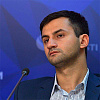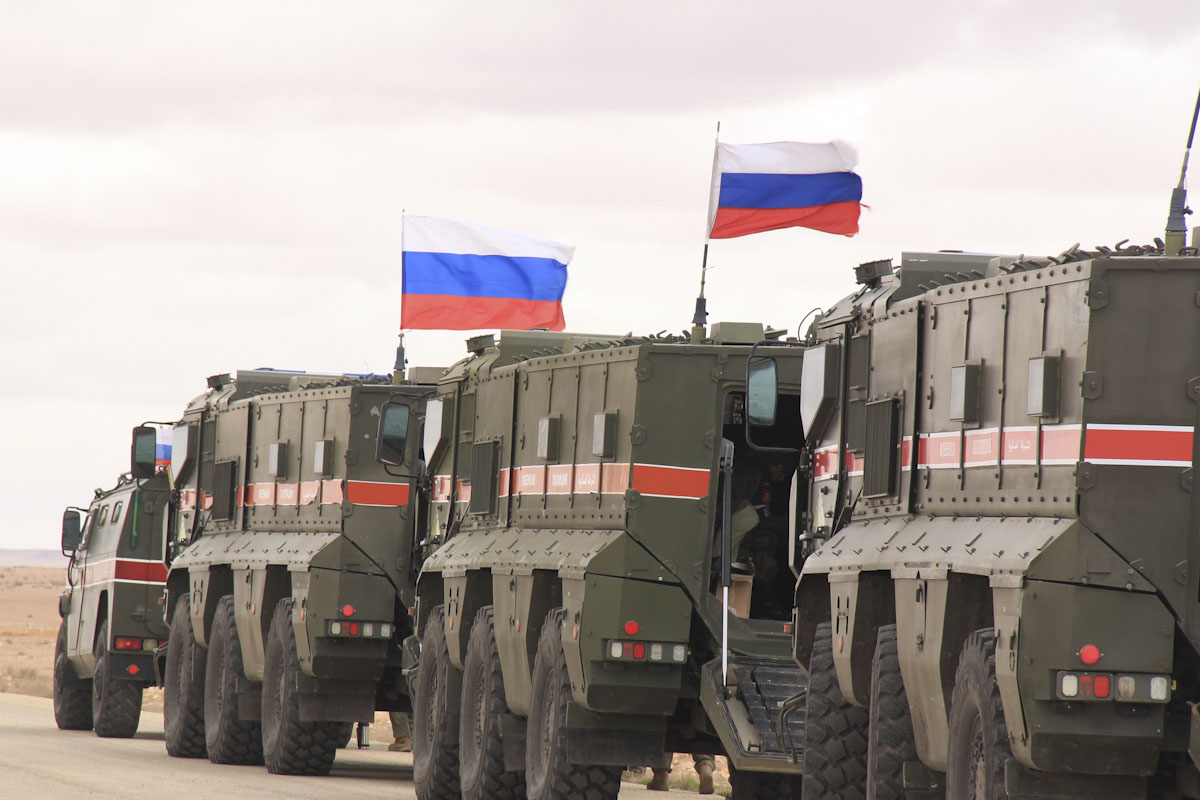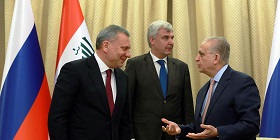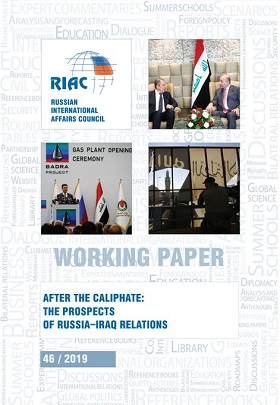If Baghdad is serious about purchasing Russian air defense systems, several issues should be considered.
First and foremost, Iraq would have to pay an immense political cost, as Russian missiles are subject to US sanctions. The contract on the S-400 or even S-300 (both systems are produced by the company Almaz-Antey) may expose Iraq to such sanctions. That said, the threat of sanctions did not prevent China, Turkey or India from buying the weapons.
Russia, in turn, should it sell defense systems to Iraq, may find that maintaining its “special relations” with Israel is challenging.
Second, Iraq can be certain that Moscow takes this request seriously, considering that it strives to maintain stability in this country and in the region in general, and keep its own interests there intact. The interests primarily concern Russia’s multibillion investments in Iraq’s oil and gas industry.
Last, even if an air defense supply contract is signed and implemented, the systems will be provided to the Iraqi army, not the PMU. Previously, deputy PMU head Abu Mahdi al-Muhandis had signed a decree — later annulled — to create a PMU air force. The Iraqi government will inevitably monitor this issue closely.
If Russia were to provide Iraq with air defense systems, it would pose a political problem requiring that Moscow carefully consider whether this move fully meets Russian interests and whether it is a safe move for its relations with other regional actors.
A series of alleged Israeli strikes on Iran-linked targets in Syria, Lebanon and Iraq have sent shockwaves across the region and beyond. The attacks on Iraq in particular are unprecedented, with long-term effects yet to be revealed. The immediate effect, however, is that both the general public and the elites of Middle East nations have raised the need to protect their skies more effectively. Currently, air defense systems are hindered by more than a lack of innovative equipment. They are also hindered by their overdependence on external powers, especially the United States. Shortly after the strikes, it didn’t take long for Russia to move closer to Iraq in terms of military-technical cooperation.
Iraqi media reported Aug. 27 that, in a meeting between Iraqi parliamentary speaker Mohammed al-Halbousi and Russian Ambassador to Iraq Maxim Maximov, the Russian diplomat said Moscow was ready to support Iraq’s initiative in the UN Security Council to expand the capability of Iraqi air defense structures.
The Russian proposal was even more appealing since the United States essentially expressed support for the attacks. After one of the Israeli assaults in Syria, US State Secretary Mike Pompeo discussed the strikes with Israeli Prime Minister Benjamin Netanyahu, expressing his “full support for these actions.” It is widely presumed in Iraq that the bombings of Iraq and Popular Mobilization Units (PMU) positions were only possible due to American approval. While the government in Baghdad avoided far-fetched statements, it sought recourse in the UN Security Council, courting Russian support for a measure to condemn the strikes. Prime Minister Adel Abdul Mahdi had already signed an Iraqi decree restricting access to Iraq's airspace “for all Iraqi and foreign parties.”
The attacks yet again prompted calls in Iraq for the quick withdrawal of the US military. The State of Law parliamentary coalition said that the Americans had arranged the opening of Iraqi airspace to facilitate the Israeli attacks. They said that Iraq should “steer toward Russia and China in order to provide the international protection [for Iraq].”
While the largest parliamentary factions, such as al-Fatah, blamed the US-led anti-terrorist coalition, Iraq’s prime minister, president and parliamentary speaker backed up the PMU during a meeting with its leaders. The above-mentioned factors mostly strengthen nationalist powers inside Iraq. External powers, including Russia, take this internal Iraqi discontent into account.
Following the damage to the PMU military facilities, PMU leader Falah al-Fayyad visited Moscow Sept. 3, meeting with the secretary of the Russian Security Council, Nikolai Patrushev, presidential envoy for Syria Alexander Lavrentiev and Deputy Foreign Minister Sergey Vershinin. The parties discussed anti-terrorist cooperation, “ways to achieve regional stability and security” and stressed the need to “avoid foreign intervention” — a not-so-subtle reference to downgrading US engagement in Iraq.
The actual reason for Fayyad's visit was probably connected to Iraq’s interest in expanding military-technical contacts with Russia and purchasing Russian air defense systems. Fayyad is a frequent guest in Moscow and has met various Russian officials, including Patrushev.
“The cooperation between the security councils and structures of [Russia and Iraq] indisputably serves their common interests,” Patrushev said after the talks.
Military-technical cooperation between Moscow and Baghdad is on the rise, as seen by the increase in Iraq's purchases of Russian aircraft and tanks. Relations expanded rapidly after 2014, when the implementation of previously signed contracts reinforced Iraq’s security system, facilitating the country’s struggle against the Islamic State. Back then, reports circulated about Baghdad’s interest in purchasing Russian S-400 missile systems. However, Iraqi government officials continuously denied these statements. Now, in light of the Israeli strikes, the Iraqi talks with Russia over reinforcement of its air defense systems is taking on new meaning in Iraq.
However, if Baghdad is serious about purchasing Russian air defense systems, several issues should be considered.
First and foremost, Iraq would have to pay an immense political cost, as Russian missiles are subject to US sanctions. The contract on the S-400 or even S-300 (both systems are produced by the company Almaz-Antey) may expose Iraq to such sanctions. That said, the threat of sanctions did not prevent China, Turkey or India from buying the weapons.
Russia, in turn, should it sell defense systems to Iraq, may find that maintaining its “special relations” with Israel is challenging.
Second, Iraq can be certain that Moscow takes this request seriously, considering that it strives to maintain stability in this country and in the region in general, and keep its own interests there intact. The interests primarily concern Russia’s multibillion investments in Iraq’s oil and gas industry.
Last, even if an air defense supply contract is signed and implemented, the systems will be provided to the Iraqi army, not the PMU. Previously, deputy PMU head Abu Mahdi al-Muhandis had signed a decree — later annulled — to create a PMU air force. The Iraqi government will inevitably monitor this issue closely.
If Russia were to provide Iraq with air defense systems, it would pose a political problem requiring that Moscow carefully consider whether this move fully meets Russian interests and whether it is a safe move for its relations with other regional actors.
First published in the Al-Monitor.







